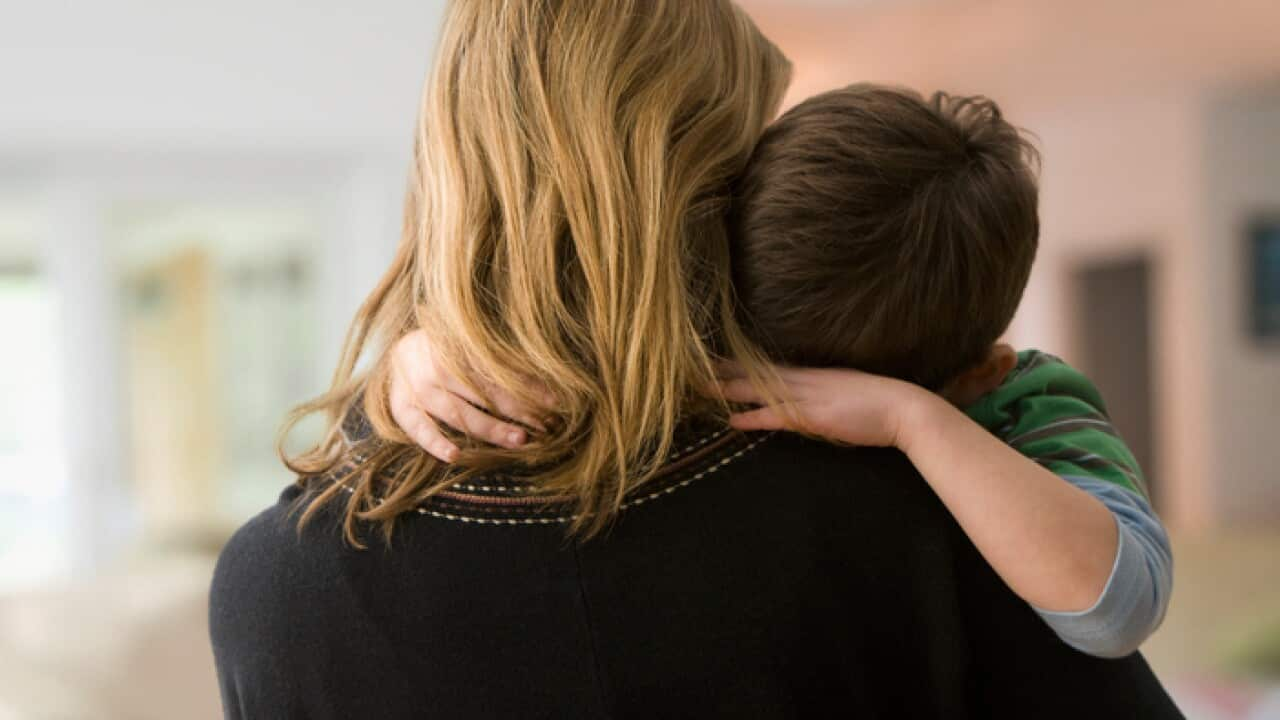WARNING: This article contains information about sexual assault and violence which may be triggering to survivors.
Thai migrant woman Malee* met her former partner at 24 while visiting her friend in Australia in 2003, an encounter that she said set her down a path she wouldn't wish upon anyone else.
When she discovered she was pregnant upon returning to Thailand, the Australian-born man asked her to give up her tourism business to move to Sydney with him "to give the baby the right to be born in a better place," she told SBS.
However, Malee describes the promise of a prosperous life morphed into a nightmare. The abuse began the day they got married, that same year, foreshadowing a constant stream of dread and isolation.
"Every day I would think, 'how I can keep him calm, how can I stop him?'."
Not long after, being raped became the norm.
"You don't know who you are anymore, you live in fear every moment."
When the new citizen tried to return to Thailand, she discovered her savings had been drained – that was when she learned about his gambling problem and addiction to marijuana.
"He'd get right in my face and he'd just scream at me: 'You look at me when I’m talking to you – you're lucky you've even got a roof to cover your head'.
"I was so scared."
Because her family could not help, she said, she hoped to move out and make a life in her new city. But confused by a foreign society where her job skills went unrecognised, she didn't know where to turn.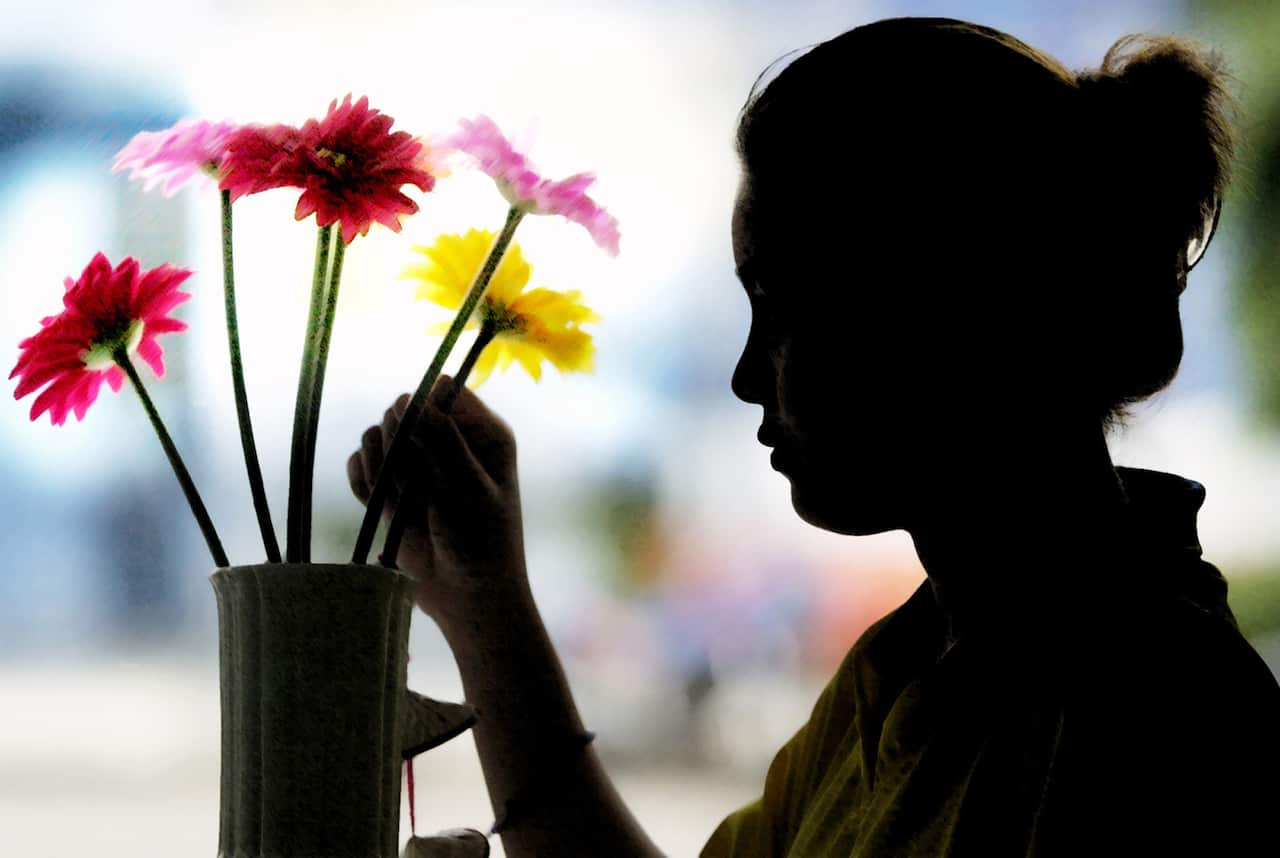 However, in 2004 when their son was about five months old, a visit from her midwife set the wheels in motion for change, first by discreetly leaving domestic-violence prevention information, and then by helping her access a refuge.
However, in 2004 when their son was about five months old, a visit from her midwife set the wheels in motion for change, first by discreetly leaving domestic-violence prevention information, and then by helping her access a refuge.

Thai women say they don't feel comfortable talking to interpreters. Source: AP
It was there she was put in touch with a culturally specific service for Thai migrant women survivors of domestic violence based in Sydney, the , which she said helped her get back on her feet, providing her with emotional support, and facilitating a job so she could make a life of her own.
*Malee is not her real name and some details about her experience have been omitted to protect her identity.
Choosing partners more carefully
When Malee returns to Thailand, she visits villages to educate women more about the potential consequences of choosing Australian- and other Western-born partners, she said.
It's something she wants to launch into a fully fledged project.
"Education is the main thing, women don't have an education about domestic violence.
"[Instead] they value money and the material, they want to have a better life and they don't see what else might come with that."
She also said she wanted to help them become more independent.
"I want them to understand they can do it (build themselves a career and independence) with their own hands.
"They (Thai women) can help each other so they don't have to look for something else."
The experience of domestic violence in Australia for Thai women
The Thai Welfare Association, which was by the Department of Immigration and Border Protection in 2013, reports that every week up to two Thai migrant women call for help, fearing for their safety. That's two each week out of Sydney's 10,000-odd population of Thai women, most of whom have Australian-born partners.
Thai welfare associations across Australia's other states report similar statistics.
The latest data, which was compiled in 2009 by Dr Sue Webster, a transcultural mental health clinical consultant for Thai groups, found that Thai women were seven times more likely to be victims of domestic violence than the national rate.
"They don't know about our law, and often when they do get help from refuges they're full or the women don't understand."
Dr Webster notes, however, that the sample size was small - one hundred Thai women from a total population of around 25,000.
Thai migrant women, who are often sponsored by Australian-born partners, are susceptible to domestic violence, Dr Webster explained to SBS, because often they have little knowledge about their rights and violent husbands can use that to their advantage by controlling them through false information and threats.
"They don't know about our law, and often when they do get help from refuges they're full or the women don't understand, so they just go back home because they can’t afford anywhere else."
She said most of these women, nearly 90 per cent, are from low socio-economic groups in Thailand.
The 2016 Victorian Royal Commission into Family Violence found that people from culturally and linguistically diverse communities are more likely to face barriers to obtaining help for family violence.
She explained that most Thai women believe they will be viewed as failures if they return to their families back in Thailand, Dr Webster said.
They are brought up to believe that domestic matters "should be kept private".
This extends to violence perpetrated by their intimate partners. "They think they must tolerate suffering, they marry for better or for worse," she said.
"The woman feels much shame when there is a relationship breakdown, because culturally speaking, they are to blame, they are at fault."
"They see it as karma – so they have to suffer because they have done something wrong so they have to endure it."
She also said their Buddhist faith could keep them in abusive relationships.
"They see it as karma – so they have to suffer because they have done something wrong so they have to endure it, they deserve to be punished."
In fact, it wasn't until 2007 that Thailand introduced a law designed to protect victims from domestic violence – before that, physical and sexual abuse of a spouse was legal.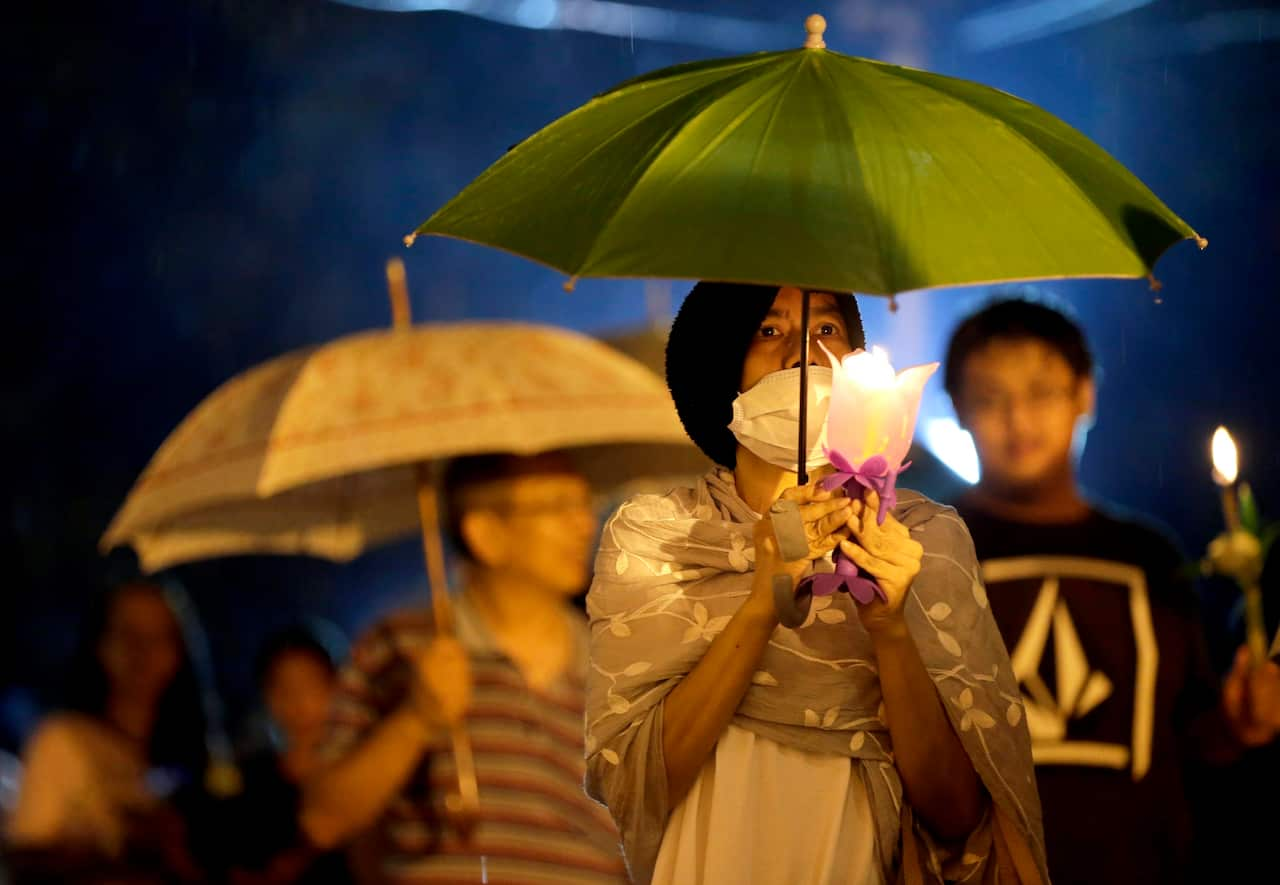

Peoples light the candles and walk around during a downpour for religious merit making to celebrate the Buddhist Lent or 'Khao Pansa' at Wat Benchamabophit. Source: EPA
A case for culturally specific services?
Culturally specific support services remove more than just the language barrier to mainstream or overarching services for immigrant survivors of domestic violence, Thai Welfare’s Tatiya Hastie told SBS.
“It’s just one element, they need a bilingual worker who can provide cultural and legal insight into Australia.
“They come here with no family network, no support network and their command of the English language may not be up to standard in terms of navigating the new country and the legal systems.”
Thai Welfare reported that Thai language interpreters, which are available at overarching immigrant domestic-violence prevention services, were insufficient.
She explained interpreters were often constrained by time limits, judgmental and unsympathetic to their needs.
“Using just an interpreter just doesn't cut it.”
Culturally specific services are also more invested in providing skills to immigrants so they can regain their independence, she said. The Thai Welfare Association, for example, trains up women with skills such as reception duties and helps them apply for jobs.
Malee said she hoped this newfound independence could help women return to Thailand and discourage their compatriots from leaving like she did.
RELATED STORY
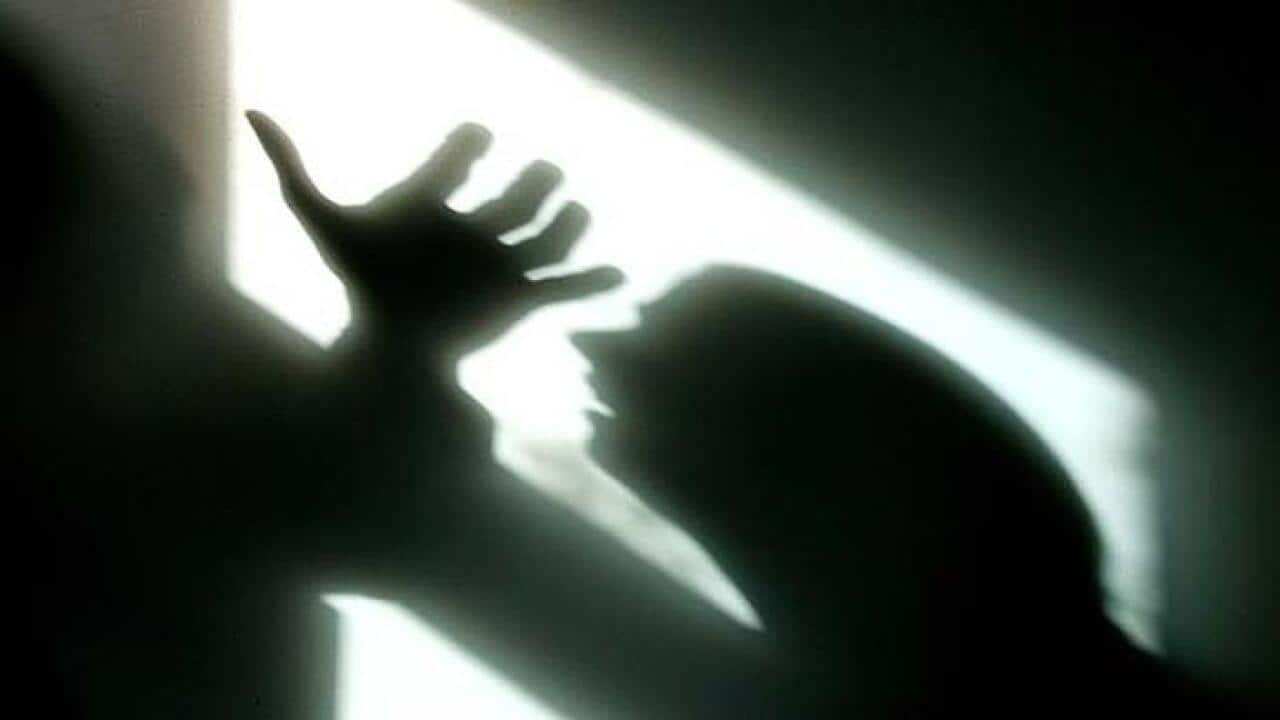
PM urged to protect migrant women fleeing violence
How the government supports immigrant women
Domestic violence prevention services say that multicultural women are at greater risk of experiencing domestic violence than their counterparts.
Currently, the NSW government, which is tasked to fund front line domestic violence services, provides some domestic violence protection services for women from migrant backgrounds.
In Sydney, it funds the Inner West Family Homelessness Support Service, Canterbury Bankstown Multicultural Family Homelessness Support Service and Western Sydney’s Homeless Multicultural Women Integrated Support Service, along with 47 refuges, a spokesperson for the NSW Department of Family and Community Services told SBS.
None are culturally specific, however workers at three services will receive training in how to access interpreters.
When SBS asked the NSW Department of Family and Community Services about whether a case for providing culturally specific domestic violence prevention services exists, a spokesperson said: "The complex nature of domestic and family violence means that no single agency would be able to resolve all of a victim’s needs."
For this reason, they said, “the NSW Government has ensured that responses across the human services spectrum for women escaping domestic and family violence complement each other and support keeping women and their children safe.”
They added that services working with clients from culturally and linguistically diverse backgrounds were expected to have an understanding of the communities in their target locations and to ensure their staff had the cultural competencies to address the needs of these communities.
When SBS asked the federal Department of Social Services if Australia should be funding culturally specific domestic violence-prevention organisations within its settlement grants program, a spokesperson said: “Family violence is unacceptable and everyone has the right to live free from harm and without fear of violence or abuse.”
The department said it had included some ethnic-specific organisations in its 2014-2015 funding round, including the Assyrian Australian Association and Chinese Welfare Services of South Australia, but clarified its grant program was not exclusively for domestic violence services.
RELATED STORY
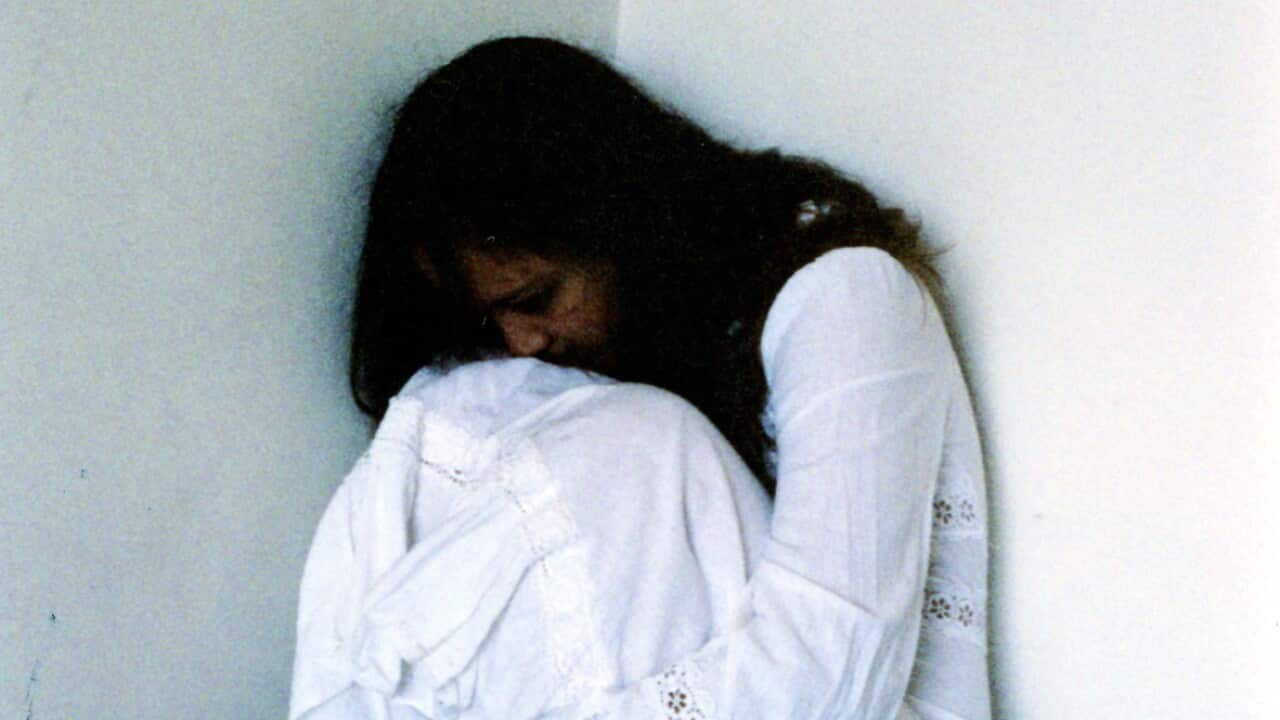
Crisis accommodation shortage hits migrant women
Facts and figures
- One in every three Australian women has experienced physical or sexual violence
- Domestic violence is the leading cause of death and injury in women under 45
- Each week, on average, a woman is murdered by her current or former partner
- Women from diverse backgrounds are among those at the greatest risk of family violence
- Some Thai women say they are afraid to report domestic abuse for fear of breaching cultural norms
- Others report being confined by their partners and not knowing the Australian system and society well enough to navigate.
If you or someone you know is experiencing violence, you can contact:
Thai Welfare Association: 02 9264 3166
1800RESPECT
Lifeline 13 11 14
Police and Ambulance 000
Translating & Interpreting Service 131 450
Suicide Call Back Service 1300 659 467
Mensline Australia 1300 789 978


